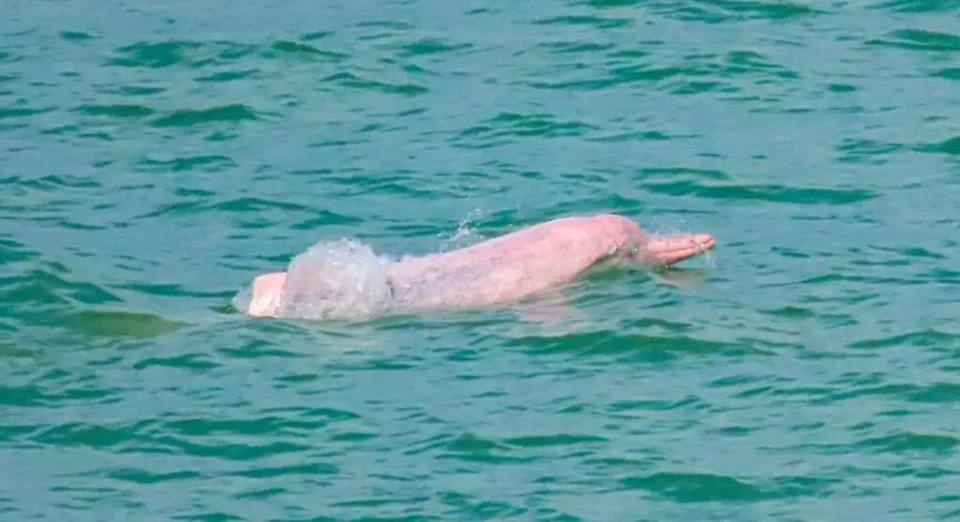
Thai Authorities push for establishment of Khanom Beach National Park to protect pink dolphins.
The Department of National Parks, Wildlife and Plant Conservation is accelerating efforts to establish the Khanom Beach-Southern Islands National Park after 34 years of preparation.
Officials anticipate the park’s official declaration within two years, aiming to enhance conservation efforts for the rare and endangered pink dolphins, along with other marine life and forest resources.
Ms. Wimonmat Nuipakdee, head of the proposed national park, revealed that the initiative, covering areas in Surat Thani and Nakhon Si Thammarat provinces, has faced significant challenges.
After resolving land overlap issues and addressing public concerns, the proposed area has been reduced to 108,570 rai (about 17,371 hectares), comprising 51,390 rai of land and 57,180 rai of marine territory.

The park’s highlight is its role as a habitat for pink dolphins, also known as Chinese white dolphins or Indo-Pacific humpback dolphins.
These marine mammals, classified as near-threatened and protected under Thai wildlife conservation laws, are indicators of the Thai sea’s ecological health. The dolphins’ pink coloration, which develops as they age, is not due to pigmentation but rather a result of blood vessels regulating body temperature.
The presence of pink dolphins has made the area a popular tourist destination, with local communities actively involved in conservation-minded tourism management.
The establishment of the national park would significantly bolster efforts to protect these rare dolphins and other marine life, ensuring sustainable use of the area’s resources for future generations. (TNA)








